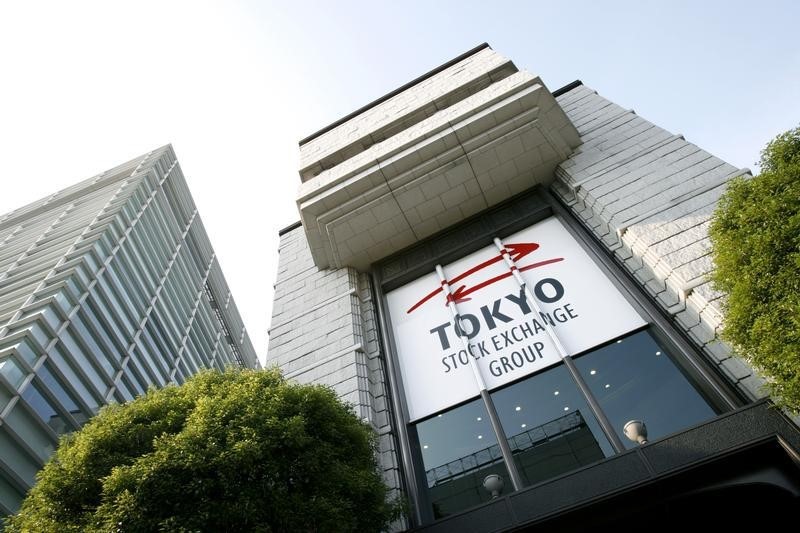By Wayne Cole
SYDNEY (Reuters) - Asian share markets got off to a subdued start on Wednesday as simmering tensions on the Korean peninsula supported safe-harbors including the yen and gold.
A holiday in the United States and a dearth of major data kept activity muted across Asia, though minutes of the Federal Reserve's last meeting due later in the day could provide some impetus.
MSCI's broadest index of Asia-Pacific shares outside Japan was off 0.01 percent, having shed 0.6 percent on Tuesday when North Korea fired a missile into Japanese waters.
Japan's Nikkei eased 0.1 percent, as did South Korea's main index.
North Korea said it had conducted a test of a newly developed intercontinental ballistic missile that can carry a large and heavy nuclear warhead.
South Korean and U.S. troops fired missiles into the waters off South Korea to show their deep strike precision capability.
U.S. Secretary of State Rex Tillerson called for global action against Pyongyang's nuclear threat, though it was not entirely clear what new steps could be taken.
The sabre rattling gave the safe-haven yen an early lift, with the dollar slipping 0.2 percent to 113.02 yen. Gold was likewise 0.25 percent firmer at $1,227.70 an ounce.
Moves were minor with the euro steady at $1.1360 and the dollar index down 0.1 percent at 96.124.
Investors awaited minutes of the Fed's June meeting to gauge how committed it was to hiking rates gain this year and any detail on plans to wind back its massive balance sheet.
"In the May minutes, 'a couple' of participants worried that tight labor-market conditions could pose an inflationary risk, while 'several others' saw a downside risk for inflation," said Kevin Harris, a director at Roubini Global Economics.
"We will look for any shift between those two concerns."
Markets imply around a 60 percent chance of another rate rise in December <0#FF:> and a much shallower path of future increases than most Fed members.
Indeed, while some other central banks had recently sounded more hawkish, signs were any unwinding of stimulus globally would be a staggered affair.
The chief economist at the European Central Bank noted healthier inflation was "crucially contingent" on policy staying easy, while Sweden's central bank sounded reassuringly cautious even as it acknowledged further rate cuts were now unlikely.
Australian policy makers showed no inclination to go the hawkish route given subdued inflation and a desire to restrain the local currency.
In commodity markets, oil was trying to stabilize around $50 a barrel on tentative signs that U.S. crude production might be slowing. [O/R]
Brent was 10 cents firmer at $49.72, having opened the week with its biggest one-day rally since December, while U.S. crude rose 7 cents to $47.14.
